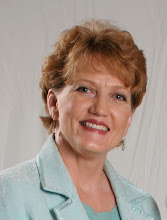July's teleconference was a great history lesson in how our modern temperament/personality systems got their start. Only after the call was over, it dawned on me that I missed an important fact - Who owns the rights to the intellectual property of these systems? Where do copyright boundaries start and stop?
I have received phone calls and emails with these questions since the teleconference, so I decided to add another page to the July teleconference handout. If you purchased a copy already, email me and I will send you the new pages, or if you haven't purchased your copy yet (10 pages) here is the link. http://www.payloadz.com/go/sip?id=980745 (There is a $2.00 charge.)
Who owns the intellectual property of the temperament/personality theories?
We all learned in grammar school not to copy word for word someone else's work and put it in our reports, claiming it to be our own - we would get a big fat F, if we did. Copying word for word without permission, is plagiarism, but a question comes into being when it's not word for word or even a quote we want to use, but the concept. Can we use someone else's teaching or concepts with out breaking copyright laws?
Who owns a concept, or can a concept even be owned? The answer is simple - a concept can not be "owned," especially if the concept has been obtained through public domain.
What is "public domain?"
Here's what Wikipedia has to say, "The public domain is a range of abstract materials-commonly referred to as intellectual property-which are not owned or controlled by anyone. The term indicates that these materials are therefore "public property", and available for anyone to use for any purpose."
http://en.wikipedia.org/wiki/Public_domain
The Copyright Website states, "The Public Domain is that repository of all works that for whatever reason are not protected by copyright. As such, they are free for all to use without permission. Works in the Public Domain include works with the following characteristics: Originally Non-copyrightable. These are items that by their very nature are not eligible for copyright protection.
These items include: Ideas - Facts - Titles - Names - Short phrases - Blank forms"
http://www.benedict.com/info/PublicDomain/PublicDomain.aspx
Schools and colleges need to know where the copyright boundaries lie also. The University of California has this statement on their website.
What is the public domain?
"The public domain is generally defined as consisting of works that are either ineligible for copyright protection or with expired copyrights. No permission whatsoever is needed to copy or use public domain works. Public domain works and information represent some of the most critical information that faculty members and students rely upon. Public domain works can serve as the foundation for new creative works and can be quoted extensively. They can also be copied and distributed to classes or digitized and placed on course Web pages without permission or paying royalties."
What types of works make up the public domain?
"Categories of material that are generally not eligible for federal copyright protection include:
Ideas and facts
Works with expired copyrights
Works governed by early copyright statutes that failed to meet the requirements for copyright protection, i.e., notice, registration, and renewal requirements
U.S. government works (projects written by non-government authors with federal funding may be copyright protected )
Scientific principles, theorems, mathematical formulae, laws of nature
Scientific and other research methodologies, statistical techniques and educational processes
Laws, regulations, judicial opinions, government documents and legislative reports
Words, names, numbers, symbols, signs, rules of grammar and diction, and punctuation"
Meyers - Briggs (MBTI) was one of the first modern systems to evolve from these brilliant theories, and if the concept of temperament/personality assessment could be "owned," they would possess whatever rights there were on the subject, but they don't. David Keirsey has proven that point, as he has taken the basic MBTI and honed the 16 types into four basic temperament categories, making the system more "user friendly," while retaining the same dichotomy foundation to his system.
The same is true with the other systems, Hippocrates' concept of humors, which evolved into Galen's temperaments is the foundation for dozens of programs. Tim LaHaye published Spirit Controlled Temperament in 1966, which inspired Florence Littauer's book, Personality Plus. John Trent then introduced us to the Lion, the Beaver, the Golden Retriever, and the Otter. Laurie Beth Jones, put a new spin on Empedocles' elements in her program The Path. Arno's found the fifth personality in the Greek line - Supine and The Color Code turned our Peaceful Green Phlegmatic, into the White category. (White isn't even a color.)
The Enneagram shot off in many directions. The Catholic Church has used this system for years, as do the Wiccans' (White Witches) and Don Richard Riso and Russ Hudson introduced the Enneagram to the world at large in their book, Personality Types.
The programs mentioned are but the tip of the ice berg, there are hundreds of modifications to the basic systems in use today. As you can see the topic of who owns what, can get quite complicated, but the topic of plagiarism is very clear - if you didn't put the sentence together, but want to use it, you need to get permission to do so. Other wise, do as our English teachers instructed us to do - say it in our own words.
WANT TO USE THIS ARTICLE IN YOUR E-ZINE OR WEB SITE? You can.
Simply include this blurb with it: Kathryn Robbins, Certified Personality Trainer, Relationship Coach, speaker and President of Personality Principles LLC, has helped hundreds of people find the missing pieces to their relationship issues, by understanding personality strengths, struggles and emotional needs. If you want to unlock the potential of your relationships, sign up for our FR*EE personality tips ezine at www.personalityprinciples.com
Wednesday, August 5, 2009
Subscribe to:
Posts (Atom)
